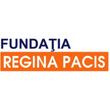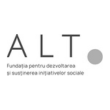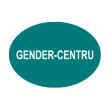Organizații vizate:
Știri sociale
- Detalii
National Platform for Public Procurement members discussed the mechanism for carrying out joint procurements and the implementation of electronic forms in public, sectoral, defense, and security procurements
The members of the National Platform for Public Procurement (NPPP) met in session on Monday, 20 October 2025. During the meeting, the Ministry of Finance presented the Government decision on the approval of standard forms for publishing announcements in the field of public, sectoral, defense, and security procurement, as well as concessions, and the experts of IDIS "Viitorul" – an analysis of the mechanism for carrying out a joint procurement and the factors that hinder the association. The event took place in partnership with the Ministry of Finance, within the project “Supporting Moldova’s public procurement reform in the EU accession context”, implemented by IDIS "Viitorul", with the financial support of the European Union, between September 2025 and September 2026.
At the beginning of the meeting, Ana Luca, Deputy Secretary General of the Ministry of Finance, stated that discussion sessions on public procurement are increasingly in demand and that more and more people are requesting to participate in such initiatives where recommendations are made. Important decisions are taken regarding the public procurement reform undertaken by the Ministry of Finance. Ana Luca emphasized that PNAP meetings contribute to increasing the degree of transparency in public procurement, standardized electronic forms (or eForms) increase the degree of digitalization of public procurement in the Republic of Moldova, and procurement through association, even if they present risks in addition to the multiple benefits they have, need additional measures to be used by the authorities.
Present at the meeting, Wojciech Paczynski, program manager at the EU Delegation to the Republic of Moldova, appreciated the platform's activities as an efficient mechanism for promoting transparency, efficiency, and integrity in public procurement. Referring to the introduction of the eForms system, the EU representative noted that it represents the basis of the digitalization process of the national public procurement system and is an essential tool for the business environment, facilitating the participation of economic agents in procurement procedures, especially small enterprises, which do not have resources comparable to those of large companies. Regarding procurement association, Wojciech Paczynski acknowledged that this mechanism is "interesting, but also complex", opening up a promising field that offers numerous benefits - from financial savings and streamlining time resources, to a more judicious use of public funds. However, he stated that these procurement associations cannot be applied in all cases, requiring a careful assessment of the context and specifics of each procedure.
Carolina Ungureanu, deputy director at IDIS "Viitorul" and project manager, said that this dialogue is essential for civil society, as all those interested in public procurement can openly discuss the reform in this field. In the context of European integration, adjustment to the acquis communautaire, implementation of the national program on public procurement, and the economic growth program, civil society must directly address the critical topics that need to be advanced.
In the first part of the meeting, Lilia Radul, a senior consultant within the Public Procurement Policy Directorate of the Ministry of Finance, presented the Government decision approving standard forms for publishing announcements in the fields of public procurement, sectoral procurement, defense and security, and concessions. According to Lilia Radul, the obligation to use electronic forms by contracting authorities and entities will enter into force on 1 January 2027, and by then, the necessary technical preparations will have been completed. Among the benefits of eForms, Lilia Radul explained, are: digitalising the procurement process; increasing data transparency; reducing the administrative burden through automatic completion; strengthening fair competition and public trust; and promoting sustainable procurement. "The implementation of eForms will contribute to the modernization, transparency, and efficiency of the public procurement system and to the European integration of the Republic of Moldova. The implementation of the system aims to harmonize the national framework with European legislation on electronic forms," said Lilia Radul.
With reference to eForms, PNAP members expressed hope that the system will be operational from 1 January 2027, to avoid the risk of using outdated forms and delay the promised digitalization. Likewise, they appreciated that centralizing this data would improve the quality of statistics in the field. They also recommended organizing training on completing the new forms, clearly explaining EU public procurement rules to ensure smooth procedures, and translating documents into English using artificial intelligence to ensure transparency.
In the second part of the meeting, IDIS "Viitorul" experts Silviu Plopa and Diana Enachi presented an analysis of the mechanism for conducting joint procurements and the barriers to the association process. The experts analyzed the legislative framework and national and international practices to highlight the advantages of joint procurement and identify legal obstacles that prevent contracting authorities from joining forces in procurement procedures. To determine the extent to which authorities are aware of the regulations and mechanisms of association, the benefits of joint procurement, and the barriers to using association, at the initiative of IDIS „Viitorul”, a questionnaire was filled 68 public authorities at the central and local levels.
"The purpose of joint procurement is to carry out procedures that bring value to public money. We find that attention is focused more on procedure than on performance and efficiency. Sometimes we need to focus on performance and efficiency rather than compliance with the law, which is very important. Still, some indicators allow us to avoid breaking the law while remaining efficient. Association in procurement allows us to procure more, more qualitatively, to cover more needs to gain authority, the public budget, and communities," said Diana Enachi.
According to Silviu Plopa, the legal framework allows contracting authorities to associate to procure certain types of goods and services. This type of association is less characteristic of works procurement. The basic finding is that the authorities do not have a secondary framework, any guides, instructions, or other forms of support that would guide them in practically applying this association. If the rules are not very clear, the authorities do not risk using them, to avoid them being later interpreted inappropriately.
"Joint procurement brings financial savings, offers more advantageous prices to authorities with small budgets. Likewise, administrative work decreases compared to organizing separate tenders, saving time and resources, increasing procurement efficiency and quality, and thus reducing the number of acts of corruption. For economic agents, joint procurements improve the efficiency of their supply chains. They also allow them to consolidate their position on the market, increase their visibility and credibility, benefit from larger orders, long-term contracts, and constant income," said Silviu Plopa.
Regarding the procurement association, PNAP members mentioned that more effort and involvement would be needed to explain and disseminate information on the benefits of this practice. Local authorities implementing the association say that there are certain advantages, such as lower prices for some larger purchases.
Gheorghe Ghidora, advisor at the National Agency for Settlement of Complaints, stated that he does not recall any appeal in a procurement procedure conducted through an association. "Of course, association is not a perfect solution, even if it offers numerous advantages. The authorities should make the decision. In the case of the Balti municipality, the use of this mechanism is logical given the authority's size and capacity. Otherwise, association limits the flexibility of the authorities and is avoided," said Gheorghe Ghidora.
Gheorghe Movileanu, director of the Public Procurement Agency (AAP), states that a problem with the association is that local or central public administrations do not want to give up their absolute independence in managing their budgets.
NPPP was established at the initiative of IDIS "Viitorul" on 19 December 2023, in collaboration with the Partnership for Transparency (PTF) from the USA, as part of the project "Increasing the integrity of public procurement”, which finished in June 2025. NPPP's activities continue within the project "Supporting Moldova’s public procurement reform in the EU accession context", implemented by IDIS "Viitorul" with the support of the European Union.
NPPP members represent authorities and organizations with an interest in the functioning and sustainability of the national public procurement system. The mission of the NPPP is to improve the efficiency, transparency, and integrity of the national public procurement system by addressing problems in the system, identifying solutions and proposing them as recommendations to be incorporated into policy by decision-makers.
Funded by the European Union with a budget of EUR 60000, the “Supporting Moldova’s Public Procurement Reform in the EU Accession Context” project is implemented by IDIS "Viitorul" between September 2025 and September 2026. Its goal is to build a transparent, efficient, and European standards–compliant public procurement system.
This press release was produced with the financial support of the European Union. Its content represents the sole responsibility of the “Supporting Moldova’s public procurement reform in the EU accession context” project, financed by the European Union. The content of the press release belongs to the authors and does not necessarily reflect the vision of the European Union.
For additional information about the project, please get in touch with the project's communication specialist, Maria Procopciuc, at +37360088544 or at the e-mail address: maria.procopciuc@viitorul.org.








